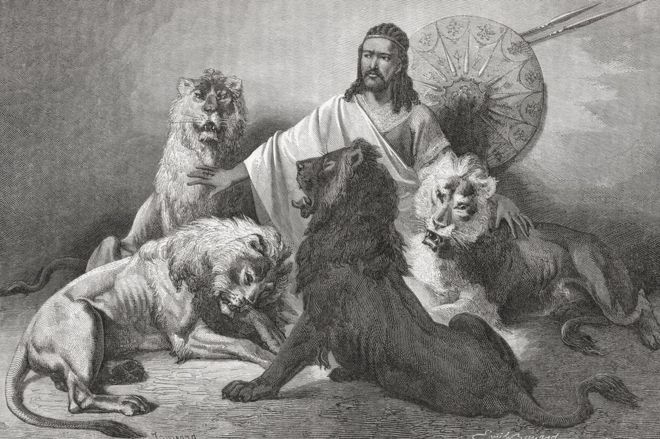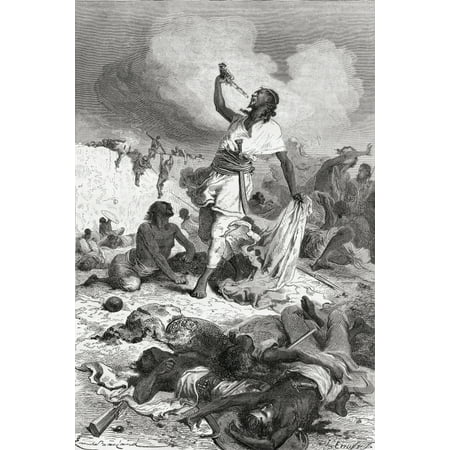After 150 years, a British museum has finally agreed to repatriate to Ethiopia two locks of hair that were taken from the head of a popular emperor in the 19th century, Tewodros II
The National Army Museum’s decision to return the hair was based on a formal request from Addis Ababa, the Ethiopian capital, and it comes at the end of a yearlong commemoration of the 150th anniversary of the confrontation known as the Battle of Maqdala.
Historical accounts state that Tewodros killed himself rather than give himself up to the British when the latter captured his mountain capital, Maqdala in 1868 in order to rescue Europeans who had been taken captive.
Hundreds of treasures were plundered by the British, including a gold crown and a wedding dress which are in the collection of the Victoria and Albert Museum, V&A.
It has been over ten years now since Ethiopia demanded a return of their looted treasures that are being held at various locations in England. Their request has since been rejected.
Last year, the (V&A) said the treasures including a gold crown and a royal wedding dress could be returned, but only on a loan basis, meaning the ownership would remain with the museum
This offer angered many Ethiopians, who wondered why a return of their own property that was looted should be complicated. Instead of offering them their own treasures on loan, why not return them completely, was the question on the lips of many.
Ethiopian authorities at the time assured that they would use whatever legal and diplomatic means to secure the return of the artefacts.
Monday’s announcement that another British museum will return the hair of emperor Tewodros has been greeted with excitement. The National Army Museum said that hair was donated in 1959 by relatives of an artist who painted the emperor on his deathbed.
“Our decision to repatriate is very much based on the desire to inter the hair within the tomb alongside the emperor” at a monastery in northern Ethiopia, Terri Dendy, the National Army Museum’s head of collections standards and care, said in a statement cited by AP.
The museum added that it had decided not to make photographs of the hair public out of respect because the matter was “too sensitive”, reported the BBC
The remains have been described as two pieces “no bigger than the size of a two-pence coin”.
It remains unclear when the formal delivery of the hair will be done, but the Ethiopian Embassy in London is expected to hold discussions with the museum this week. The embassy has lauded the museum’s move, describing it as an “exemplary gesture of goodwill.”
“A display of jubilant euphoria is to be expected when [the hair] is returned to its rightful home,” it said in a statement
Ethiopians are also demanding the return of the emperor’s son, Prince Alemayehu, who is believed to have been stolen by British soldiers when they looted his father’s imperial fortress in 1868.

Alemayehu died at the age of 18 after suffering racism and was buried at St George’s Chapel at Windsor Castle at the request of Queen Victoria.
Who is Emperor Tewodros II?
Emperor Tewodros II ruled over Ethiopia from 1855 till his death in 1868. His rule brought considerable development and change to the military and the structure of governance such that his era is described as the beginning of Modern Ethiopia.

Between 1851 and 1855, Twedoros II dedicated his life to defeating all districts until he was crowned king of kings of Ethiopia and named King Tewedros II. Up until his crowning, he was known as Kassa Hailu.
As King, he did not only establish a structured government and rule of a central king but also became quite successful in easing tension between districts and making Ethiopia a more peaceful state.
Unfortunately, Tewodros II soon became power drunk after gaining the respect of other states in Africa and Europe. After defeating Tedla Gwalu in 1863, he ordered the killing of close to 7000 prisoners he had captured.
By October 1863, he was feared and unwanted in most of Ethiopia.
To gain more power, Emperor Tewodros II planned to conquer Jerusalem and attempted to seek the help of the British but his plans were leaked, and information was sent out to lower ranking British officials who stopped him.
He then sent a letter to Queen Victoria through Captain Charles Duncan Cameron, the British Consul in Ethiopia requesting support from the Britsih army to build a stronger army by sending arms and trainers. He still suggested the joint conquering of Jerusalem.
His letter went unanswered and the Emperor retaliated by arresting and locking up Captain Charles Duncan Cameron and all British and Europeans in Ethiopia. After two years of keeping the foreigners in prison, the Emperor threatened Mr Stern, a British writer who had written a book describing his cruelty, and killed two of the writer’s servants.
After three years, the Queen responded to the Emperor’s letter. Tewodros II was so insulted by the negative reply that he imprisoned members of mission lead by Hormuzd Rassam, who bore the letter, and other Europeans.
This marked as a breach of diplomatic immunity, forcing Britain to wage war against Ethiopia. The British sent an expeditionary force from India to Ethiopia to fight against the Emperor who, for the first time in several years, was greatly defeated.

After the defeat, Emperor Tewodros II attempted to make peace but declared that he would never be taken in as a prisoner.
The British went ahead to attack Magdala, where the Europeans were kept as prisoners under full protection under the Ethiopian army. They killed most of the military officials and loyal followers of the Emperor.
The Emperor quickly released the European prisoners and ordered up to 300 of the remaining military to jump over a cliff and committed suicide by shooting himself in the head with a pistol on Easter Monday, April 13, 1868, before the British could reach him.
The move to return his locks of hair has rekindled demands for the UK to return all the looted artefacts on display in British museums.










